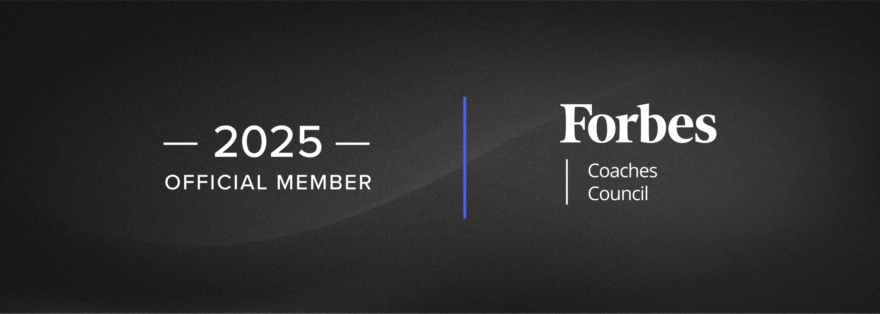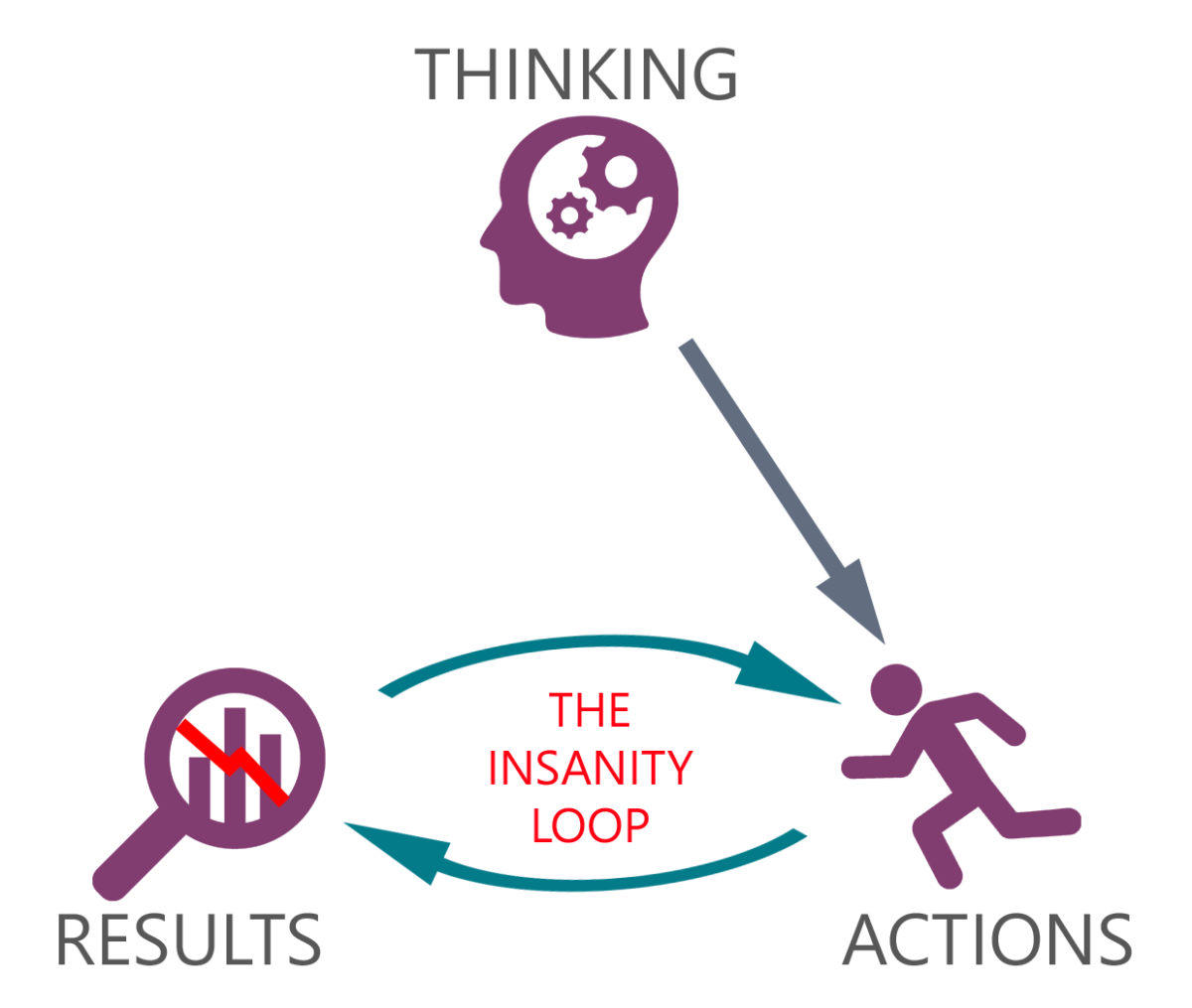In this podcast, Paul and Richard tackle one of the questions we have been asked a lot since the pandemic ended – How do you build trust between team members and teams that don’t spend that much time in the office.
Building trust between individuals and groups is far more complex than many of us realise because we do it so easily when we are together. We build trusting relationships through the micro-moments we spend together: before meetings, over lunch, getting coffee and in quick informal interactions. We also build trust through working together. It is the combination of both these types of trust that forms the relationships that we need to work together.
As leaders, we must change how our teams interact to ensure that the trust we need to achieve our goals is actively built so our teams can leverage trust when things get tough.
Are you giving your team Quality Feedback?
Ricky shares his five top tips for giving purposeful feedback:
Feedback: Five Top Tips for Purposeful Feedback
Feedback is one of the most critical tools and skills of any manager’s skillset.
In this video, Ricky explores five top tips for managers and leaders and includes a personal example.
- Do you lay solid foundations for feedback?
- Is feedback a habit?
- Is it factual and founded on evidence?
- Is it purposeful? Can your people do something with your feedback?
- Are you present when giving feedback or distracted?
What do you think?
Related Content
Do you want to know how to deliver feedback effectively at work?
In this video, we share with you five tips on delivering effective feedback in a way that will be respectful and helpful to you and your team members.
Learning how to deliver feedback effectively is essential if you want to be a successful manager of people! In this video, we’ll show you how to deliver feedback in a way that will help your team members grow and learn. We’ll also discuss the importance of feedback in the workplace and give you some helpful tips on how to give feedback effectively!
If you prefer to listen, here are a couple of podcasts on feedback.
How to achieve success in 2025
How to achieve success in 2025 – 5 Top Tips.
In this video, Ricky shares five areas guaranteed to set you up for success. They provide a set of checks and balances that will inform you if you are on course or off course and enable you to course correct as you go.
You can also download our business challenge toolkit, which provides a host of templates, how-to videos, and a proven formula for success.
Download it here: Business Challenge eKit.
Building Trust In Teams: Insights From Leadership Experience
Over decades of leading large teams and coaching executives in renowned companies, I’ve learned that trust isn’t just a component of effective leadership—it’s its very foundation. Without trust, strategies falter, innovation stalls and organizations come to a standstill. Today, I want to explore how to build trust within teams from both a leader’s and a team member’s perspective, providing practical insights rooted in real-world experience to help you enhance trust in your own teams.

The Necessity Of Trust In Leadership
Trust acts as a stabilising force in large corporate environments where complexity and change are constants. It’s the invisible thread woven through every interaction and decision, accelerating progress and uniting teams toward shared goals. The impact of trust isn’t theoretical; it’s tangible and profoundly influences organizational success.
Frances Frei’s Trust Triangle
Harvard Business School professor Frances Frei offers a compelling framework called the Trust Triangle, consisting of three critical elements:
Authenticity: Being true to yourself. People can detect inauthenticity instantly; it’s essential to be genuine.
Logic: Having clear and sound reasoning. Your logic should be solid, and you must articulate it effectively.
Empathy: Understanding and sharing others’ feelings. Showing genuine concern for others is crucial in building trust.
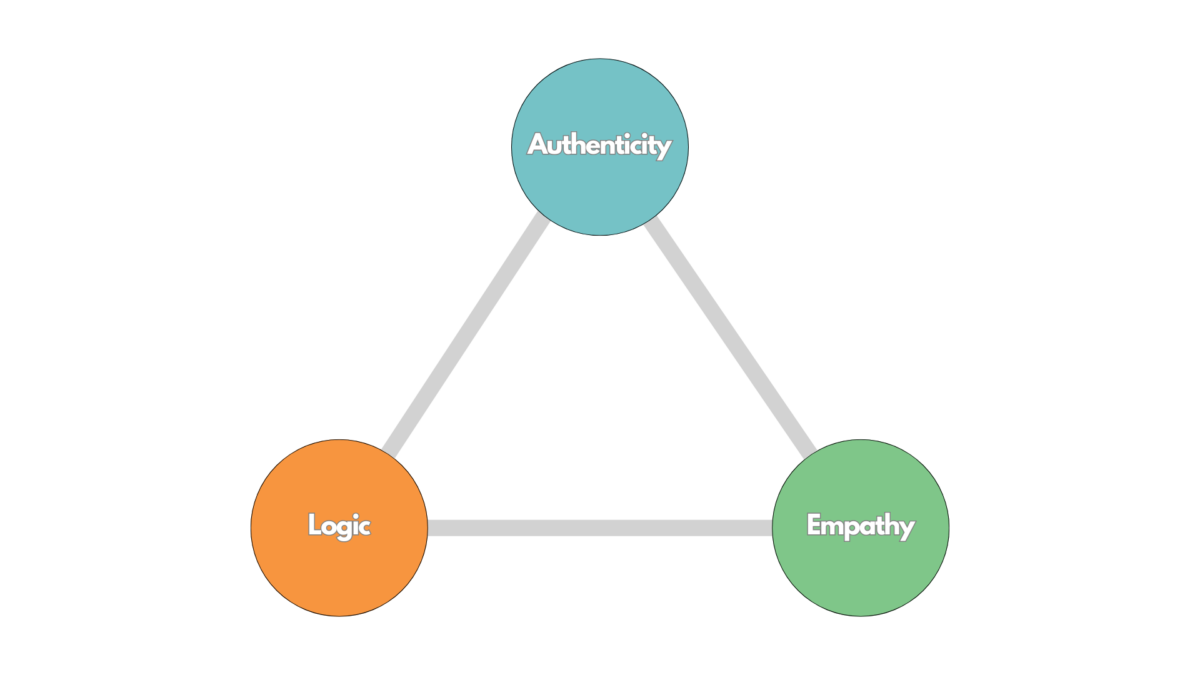
These elements interconnect to form two essential types of trust in leadership: cognitive trust and affective trust.
Cognitive Trust: Trust Of The Head
Cognitive trust is the trust of the mind arising from belief in a leader’s competence and reliability. It thrives when team members perceive their leader as authentic and logically sound.
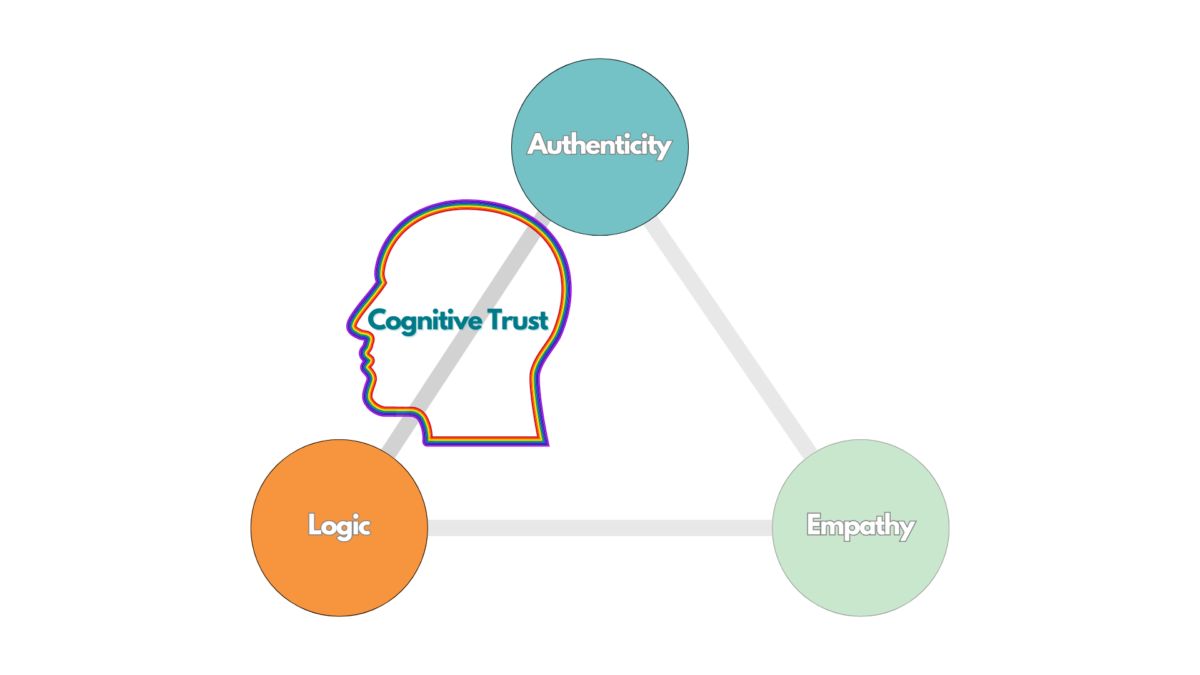
From The Leader’s Perspective
Demonstrate consistency. Align your actions with your words. Inconsistencies quickly erode trust.
Communicate the ‘why.’ Provide context for decisions to empower your team with understanding, not just directives.
Be transparent about challenges. Authenticity includes acknowledging obstacles and sharing your approach to overcoming them.
From The Team Member’s Perspective
Seek clarity. Don’t hesitate to ask questions if something is unclear; this strengthens collective understanding.
Acknowledge expertise. Recognize your leader’s experience, fostering mutual respect and reinforcing cognitive trust.
Affective Trust: Trust Of The Heart
Affective trust is the trust of the heart, cultivated when leaders authentically connect on an emotional level and demonstrate genuine empathy.
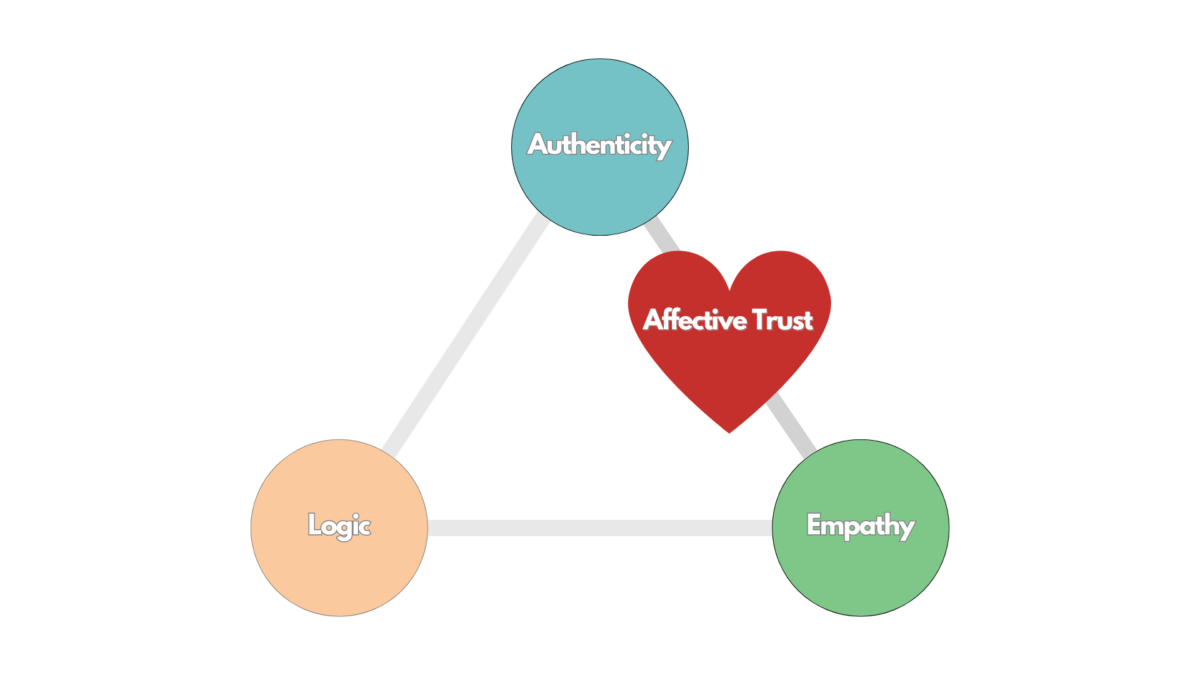
From The Leader’s Perspective
Invest in relationships. Take time to understand your team members’ aspirations, fears and motivations.
Show vulnerability. Sharing your challenges and failures humanizes you and creates a safe space for others.
Listen to understand. Focus on truly understanding your team members’ feelings and perspectives.
From The Team Member’s Perspective
Engage openly. Share your perspectives and challenges; building trust is a collaborative effort.
Support peers. Show empathy toward colleagues, strengthening team cohesion and supporting a trusting culture.
Practical Strategies For Leaders To Enhance Trust
- Conduct trust audits. Regularly assess trust levels within your team, seeking honest feedback.
- Lead with integrity. Uphold ethical standards consistently, even when faced with dilemmas.
- Empower decision-making. Delegate authority, showing confidence in your team’s abilities.
- Celebrate wins and learn from losses. Recognise achievements and approach failures as learning opportunities.
Empowering Teams To Build Trust Among Themselves
- Foster collaboration. Encourage cross-functional teamwork to build trust naturally.
- Encourage peer recognition. Implement systems for team members to acknowledge each other’s contributions.
- Promote transparency. Facilitate open communication channels across the team to reduce misunderstandings.
Navigating Trust Erosion
Despite best efforts, trust can sometimes erode due to factors like organizational changes or external pressures.
For Leaders
Address issues directly. Confront trust
issues with honesty and a commitment to resolve them.
Rebuild through actions. Restore trust through consistent, trustworthy actions |
over time.
For Team Members
Provide constructive feedback. Express concerns respectfully; leaders can’t address unknown issues.
Stay committed. Continue performing at your best, contributing positively to the trust environment.
The Synergy Of Cognitive And Affective Trust
Authenticity links cognitive and affective trust. By aligning your genuine self with logical reasoning and empathetic understanding, you create a powerful trust dynamic that resonates both intellectually and emotionally with your team.
Case Study: Trust In Action

I once led a global team through significant organizational change. Initial trust was low due to past leadership missteps. I addressed this by:
Being Transparent: Sharing challenges and the strategic plan openly (Authenticity + Logic).
Engaging Personally: Holding one-on-one meetings to understand individual concerns (Authenticity + Empathy).
Collaborating On Solutions: Incorporating team feedback into implementation plans.
Over time, we not only navigated the change but emerged stronger and more cohesive, demonstrating the impact of building both cognitive and affective trust through authentic actions.
Conclusion: Trust As The Catalyst For Excellence
In the vast corridors of large corporations, trust humanizes the workplace. It’s the catalyst that transforms strategies into successes and groups into unified teams. As leaders, embodying authenticity, logic, and empathy is imperative.
Action Steps
Reflect on your trust triangle. Identify which element—authenticity, logic or empathy—you need to strengthen and develop a plan to enhance it.
Engage your team. Initiate dialogue about trust, encouraging open sharing and collective growth.
Lead by example. Your actions set the tone and embody the trust you wish to see.
Final Thoughts
Building trust requires consistent, intentional actions and a willingness to grow alongside your team. From my experience, the dividends of trust—in engagement, innovation and performance—are well worth the investment.
By focusing on both cognitive and affective trust and recognizing authenticity’s pivotal role in bridging logic and empathy, you position yourself and your team to exceed objectives, turning challenges into opportunities for greatness.
Embrace the journey of building trust. Your leadership will inspire your team and leave a lasting impact on your organization’s culture.
This article first appeared on Forbes.com on 3rd January 2025
Ricky has been a regular contributor to the Forbes Councils since 2023, where he shares his perspectives on all things leadership, change, culture and productivity, all with Thinking Focus’ unique perspective on metacognition, or as we prefer to say, thinking about thinking.
Mindset Shift: The Key to Driving Performance and Empowering Teams
- Are you or your team stuck in a problem-solving rut?
- Ready to turn roadblocks into breakthroughs?
Watch our webinar, where we revealed how a simple mindset shift could transform even the toughest challenges into powerful opportunities, as featured on Forbes.com.
In just 45 minutes, you will discover proven techniques for reframing your rumination and self-limiting beliefs, unleashing creativity, and driving your and your team’s results.
This recording is your chance to learn how to think differently and achieve your next big breakthrough!
Checkout the free resources too:
Mindset Toolkit:
https://thinkingfocus.aflip.in/ToolsforMindsetShift
Webinar Slides:
Mindset Shift: The Key to Driving Performance and Empowering Teams
This webinar explored how to get unstuck; this toolkit accompanies the webinar and provides a practical three-step process that any individual or team can use to turn unhelpful rumination, or as we call it, problem-focused thinking, into solution-focused thinking. By clearing away the limiting beliefs and assumptions holding you back, you can make giant leaps forward and deliver the success you desire. Look out for a couple of bonus tools, too!
How can I do this all over again?
The coaching question in this podcast might not be as common as others we have covered, but it is one we can personally relate to.
Regardless of your role or expertise, there are times when we give it our all, putting everything we have to get something over the line, then we reset to the start and have to go again. Sales targets reset each year, project manager complete their delivery only to get a new project, software engineers get the release out the door, and then start working on a new feature.
Ricky and Paul explore what it take to have to reset, sometimes overnight, and the find the energy to go again.
How can I be less of a people pleaser?
This episode continues our series of common topics from coaching conversations. In this episode, Paul and Graham consider the idea of ‘people pleasing’ – being helpful to the point of thier own detriment.
From understanding the difference between helpfulness and people pleasing, through to how to say no to the boss, Graham and Paul talk about what might be driving some of these behaviours and shat are the simple strategies that you can adopt to ensure you find the balance between helping and supporting the people around you, and ensuring that you protect your own time and wellbeing.
Unstuck: How You Can Reframe Your Mindset For Breakthrough Performance
Imagine spearheading a groundbreaking project, only to find yourself facing a massive roadblock: there’s no market for your product. For many leaders, the instinct is to salvage what already exists, but this often leads to cognitive tunnelling—a trap where focus narrows, creativity fades, and progress halts. This article dives into a real-world example where shifting the mindset from salvaging to reframing turned a seemingly doomed idea into an industry-changing solution.
Packed with practical exercises, this piece equips leaders with mindset-shifting tools to unlock breakthrough results by broadening perspectives. If you’re ready to see how a small shift in thinking can redefine the success of your toughest challenges, this article provides a proven roadmap. Whether you’re navigating market constraints, tight budgets, or innovation fatigue, the key to overcoming obstacles isn’t simply in doing more but in thinking differently.

Imagine you’re leading a high-profile project sponsored by the board of directors—a career-defining opportunity. You’re expected to turn a novel idea into a significant revenue stream for the business. But there’s a catch: You realise that the product you’re working on doesn’t have a market. What do you do?
This scenario may sound familiar to many leaders. You’re tasked with making the impossible possible, and when roadblocks emerge, it’s easy to get trapped in a cycle of overthinking. However, the key to breakthrough performance often lies not in finding a perfect solution but in reframing the problem itself.
The Challenge: When A Great Product Has No Market
We were running a leadership program with a 180-day business challenge built in. This enables leaders to apply their learning in real time to something meaningful. I worked with a team tasked with developing groundbreaking technology for dairy farmers. This technology could instantly measure the nutrient content in, let’s say, a less-than-glamorous material, helping farmers adjust feed mixes to optimise dairy yield.
The product came in two forms: a premium, state-of-the-art version with cutting-edge tech and a more affordable but still costly alternative. But there was a problem: Dairy farmers could already get similar data from feed manufacturers—for free. They’d just have to wait 48 hours for the result. This left the team facing what felt like an insurmountable challenge.
Cognitive Tunneling: The Silent Performance Killer
When the team presented the problem, they were visibly disheartened. Their entire focus was on how to explain to senior leaders that the project had hit a wall. They were caught in what psychologists call cognitive tunnelling—a mental state where you become so fixated on one issue that you can’t see alternatives.
The problem wasn’t just that the product wasn’t viable; it was that the team’s thinking was stuck in a loop of trying to salvage a seemingly doomed idea. This kind of tunnel vision often leads to catastrophising and an inability to see the bigger picture. For leaders, cognitive tunneling is a major barrier to creative problem-solving and breakthrough results.
The Mindset Shift: Redefining The Goal
I encouraged the team to step back and redefine the problem. Instead of fixating on why farmers wouldn’t pay for the technology, we asked: What if there’s a different way to deliver value?
Over the next 45 days, they explored the issue from different perspectives, speaking to people inside and outside the industry. The breakthrough came when they reframed the question: What if farmers didn’t have to buy the technology? What if they could lease it instead?

This small shift opened up an entirely new business model. Farmers could pay a small monthly fee for immediate access to the data, which would help them optimize their feed and boost their dairy yield. The company, in turn, would gather a massive data set from farms across the country, providing invaluable insights for the agricultural sector. What started with a project team being stuck evolved into a business with the potential to transform the industry.
Practical Takeaways: How Leaders Can Get Unstuck
Ask Different Questions
- What else could I possibly do?
- Who else might have faced this problem?
- What might [insert someone inspiring] do if they had this problem? (I use Batman, by the way.)
- If there were no constraints, how might I achieve this?
Break The Insanity Loop
Repeating the same actions and expecting different results is a common trap. Instead, recognise when your thinking is stuck in a loop and consciously shift to a different approach. This mindset shift can open doors you didn’t realise were there.

Use The Post-It Exercise
Here’s a simple technique to break free from limiting thoughts. Write down all your thoughts about the problem—both helpful and unhelpful—on separate Post-It notes. Then:
- Sort them into what’s in your control and what’s not.
- Discard anything outside your control (literally throw those notes away).
- Focus only on what’s within your control and categorise these thoughts into those moving you forward and those holding you back.
Get Creative
Once you’ve sorted your thoughts, focus on those holding you back and ask yourself:
- What have I done before that could help me now?
- What could help me most right now?
- What could be the most helpful thing to focus on?
- What could I learn from this situation?
- How could I make this work for me right now?
- What might be the best, most realistic outcome I can imagine?
The Power Of Reframing
The team I worked with didn’t just solve a problem—they transformed the business. By reframing their approach and asking different questions, they unlocked value that wasn’t visible at first. The same can happen to you. When faced with seemingly insurmountable challenges, it’s not about having all the answers but about asking the right questions.
Remember, what got you here won’t get you there. The key to breakthrough performance isn’t more tools or data—it’s thinking differently. You can drive the desired results by stepping back, getting creative and reframing the problem.
This article first appeared on Forbes.com on 1st November 2024
Ricky has been a regular contributor to the Forbes Councils since 2023, where he shares his perspectives on all things leadership, change, culture and productivity, all with Thinking Focus’ unique perspective on metacognition, or as we prefer to say, thinking about thinking.
How do I stop feeling so tired?
As we continue our mini-series of common topics from coaching conversations, in this podcast, Ricky and Paul explore why sometimes people feel drained at work, leaving them with an overall feeling of being tired.
Clearly, at times, we can all burn the candle at both ends, but in coaching situations, this is often a sign of something deeper going on. From doing work that is draining to the unintended consequences of the habits we adopt when our workload goes up, Ricky and Paul explore some potential causes and strategies to help maintain us through these peak times.




